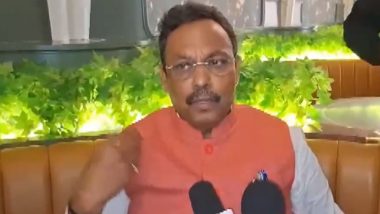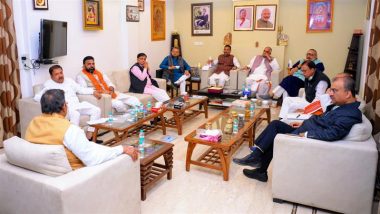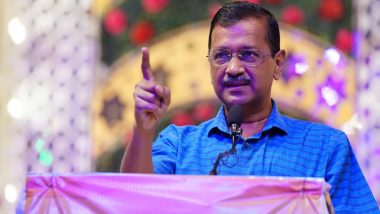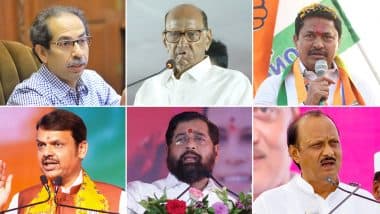Karnataka, May 11: Campaigning in Karnataka has come to an end, with high-intensity rallies being carried out by both the Congress and the Bharatiya Janata Party (BJP) to woo voters in their favour in both rural and urban areas. According to Election Commission data, Karnataka consists of 70 urban and 154 rural assembly constituencies. While nearly half of the urban constituencies are in Bengaluru city (28), the rest are spread across seven city corporations - 43 city municipal councils (CMCs), 65 town municipal councils (TMCs) and 92 town panchayats (TPs).
Drawing from the experience of the Gujarat assembly elections in December last year, it was observed then that the BJP held strong ground in urban Gujarat, while the Congress had the rural voter segment in its grip. Assembly polls in Karnataka take place tomorrow, and it will be worth a watch to see whether the BJP can work its magic in rural and urban areas, or will they concede defeat to the grand old party for the second time.
While the election results in Gujarat depicted a clear urban-rural divide, a similar situation is hard to ascertain in Karnataka, based on the results of the past two elections. A cursory glance at the 2008 and 2013 elections in Karnataka show that results could go either way, thereby eliminating the possibility of a clear-cut pattern in voting. Taking Bengaluru into account, which has the most urban constituencies, the BJP, in 2008, won in 17 out of 28 seats, while the Congress won nearly 60 percent of the rural seats in the state.
Tables, however, turned in 2013, with the Congress winning 13 seats, one more than the BJP. It must also be noted that in 2008, campaigning largely focused on the rural population, while in 2013, the urban voter dominated the decision-making process. While the rural population is looking forward to increased availability of electricity, clean drinking water, education and job opportunities, the urban voter is more concerned about commuting through the harrowing, traffic congested streets of India's IT hub.
Opinion polls conducted across the state have shown that Chief Minister Siddaramaiah's campaign is leaning towards the rural population, be it his emphasis on promoting Kannada or the importance of preserving the state's culture and heritage. While these may garner votes in the Congress' favour, the alarming rate of farmer suicides in this stratum could swing votes in either direction.
The BJP too has been capitalising on the opportunity to hold the Siddaramaiah government responsible for the plight of farmers and the lack of basic amenities, which may open doors for the former to woo rural voters. Opinion polls have also stated that the BJP may secure a higher share of votes in urban Karnataka, as many feel that issues related to Bengaluru have not been tackled during the Congress reign, be it infrastructural congestion, growing traffic, pollution of lakes, inefficient management of garbage, delays in the Metro rail construction, all of which have contributed to a disruptive existence.
Although campaigning has been extensively rural-centric, the urban voters, along with the final stance of the Janata Dal (Secular) would be game-changers.
Karnataka will elect representatives to 224-seat assembly on May 15. A total of 2,655 candidates are in the fray and 4.96 lakh people, including 2.52 crore men and 2.44 crore women, will take part in the election. Over 15 lakh are first-time voters in the 18-19 years age group. The population of Karnataka in 2018 as per estimated data is over 68 million. The literacy rate is 75.36 percent as per latest data. About 84 percent of its people are Hindu, 13 percent Muslim, 1.9 percent Christian, 0.16 percent Buddhist and 0.05 percent Sikh.
Kannada is the official language of the state and is spoken by 66.26 percent of the population. The population density of the state is 319 persons per square kilometre. The number of people living per square kilometer in the city has extended to 4,378 in the year 2011 from 2,985 in 2001, The BJP has fielded 224 candidates, while Congress and JD (S) have fielded 222 and 201 seats respectively.
The election is considered significant for the incumbent Congress, who wants to retain power in the southern state ahead of the next year's general elections, while the BJP is going the extra mile to dethrone the Siddaramaiah government and come back to power after a decade under the leadership of former chief minister B.S. Yeddyurappa. The JD(S), too, is looking to establish itself once again in the state's politics and is being perceived as a game changer in the state.
(This is an unedited and auto-generated story from Syndicated News feed, LatestLY Staff may not have modified or edited the content body)






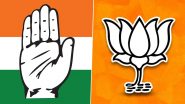






 Quickly
Quickly









